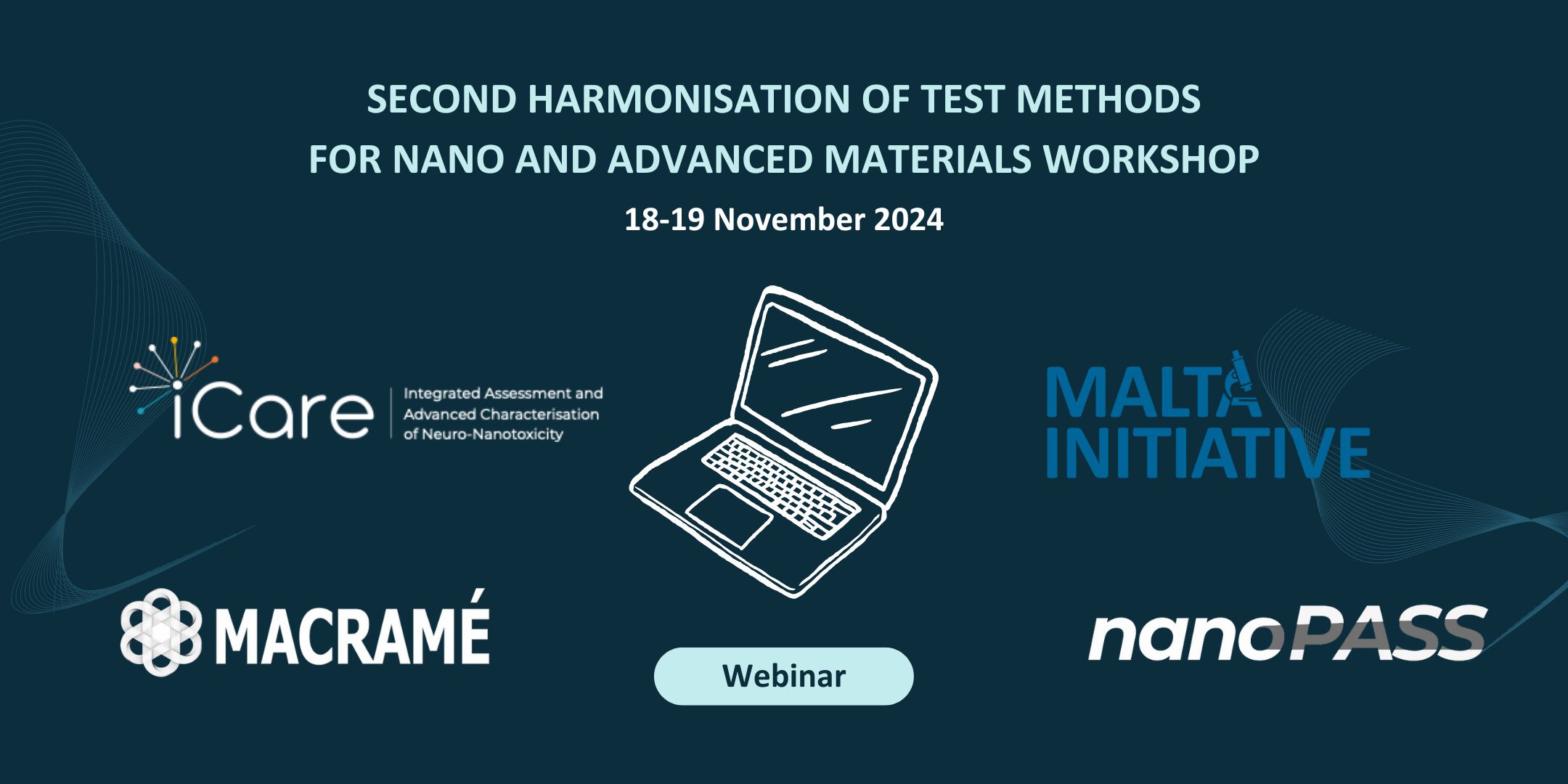iCARE Project Advances Testing Standards at Second Harmonisation Workshop
The Second Harmonisation & Standardisation of Test Methods for Nanomaterials and Advanced Materials Workshop, held virtually on November 18-19, 2024, served as a platform for industry leaders, researchers, and policymakers to drive forward efforts in developing and harmonizing testing standards. Among the highlights of the event were the contributions from the iCARE project.
At the heart of the discussions was the need to address the evolving complexity of nanomaterials and advanced materials. The iCARE project illustrated how cutting-edge research could meet these challenges. For example, the International Iberian Nanotechnology Laboratory (INL) showcased its work on alternative testing methods using Caenorhabditis elegans, a small nematode model offering cost-effective insights into the neurotoxic effects of nanomaterials such as diesel exhaust particles. This approach underscored the potential of non-animal methods in achieving reliable, reproducible safety data.
TEMASOL advanced the conversation around lifecycle assessments, emphasizing the importance of standardized methodologies from the synthesis of nanomaterials to their end-of-life disposal. Blanca Suarez-Merino of TEMASOL led key discussions on regulatory frameworks, highlighting the critical need to harmonize definitions and testing protocols across jurisdictions to ensure fair and effective oversight.
From an industrial perspective, Versarien PLC exemplified how manufacturers can actively contribute to standardization efforts. By providing graphene materials for case studies, the company demonstrated the practical applications of nanomaterials in real-world products such as cement and rubber composites. Their collaboration in refining test protocols reflected the importance of aligning industrial innovation with regulatory requirements.
The iCARE project’s contributions resonated deeply with the workshop's overarching themes: the necessity for collaborative partnerships, the integration of non-animal testing methods, and the development of comprehensive, lifecycle-based assessments. Participants agreed that projects like iCARE are essential to bridging the gap between cutting-edge research and the practical implementation of regulatory standards.
As the nanosafety community continues to navigate the complexities of advanced materials, the iCARE project is paving the way for a safer and more sustainable future in nanotechnology.
🔗 The recordings from both days of the workshop are now available to watch on YouTube.

